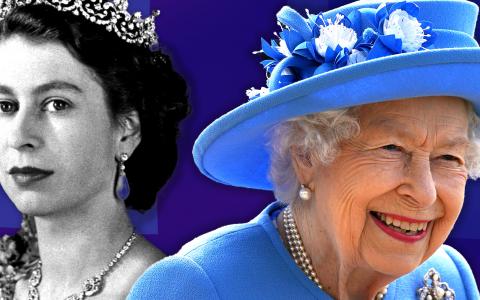
Real wealth isn't actually about the numbers. While the queen didn't even make the official billionaire lists, I suspect a lot of Silicon Valley "royalty" would sell their golden shares to exchange places with her heirs.
After all, the Windsors invested heavily in dynastic continuity. At this point, they're literally the status quo . . . beyond personal property, beyond normal succession planning, practically a law unto themselves.
And they have a head start measured in centuries. The systems the queen's ancestors built and she perpetuated remain resilient and robust.
Mark Zuckerberg, Larry Ellison and Jeff Bezos can only dream of a "family office" that operates as smoothly as the royal household. Their people are great, but they're still only operating on the first generation.
You need more than a big pool of money to really qualify as a dynasty. Ellison's kids went to Hollywood. Steve Jobs' daughter got a modeling contract. These are valid ways to live your life, but they don't really extend any kind of unique family ethos.
Anyone with looks, connections and a little luck can build a modeling career. You don't need to be a Jobs or demonstrate any philosophical link back to Apple or Pixar. Family money can support you either way, but it's just money.
The royals, on the other hand, survived as a coherent institution into the modern era because multiple generations worked hard to define and embody an ethos. Whether you like them or not, you've got a pretty good sense of where they stand.
The queen in her seven decades as head of the family did most of that work. What she built has the reach of a gigantic Silicon Valley corporation . . . but it's structured as a family and not a public company.
The real assets are concentrated in the family itself. Human resources are born and not hired. Education and marriage are the weak links in the chain.
Self-made billionaire families are content to send the kids to the schools of their choice. There might be a multi-generational connection, but then again, there often isn't.
And the kids often find their romantic partners at school or in early adult life. Needless to say, this has been a sore spot for the royals as generation after generation ends up with partners the queen doesn't see living up to the family ideal.
They aren't the kind of people she would "hire" in her corporation. But given the constraints of mortality, they're going to exert influence on the dynasty now that she's gone . . . either in leadership positions or through influence on generations to come.
Eve Jobs, on the other hand, has no say in how Apple is run today or tomorrow. She has the money and the name, but not the corporate role. We don't do that here.
A generation from now, the name will still be there. The money might or might not last. Other people will run the business.
It's different when the family is the business. The queen was CEO for life, with a set succession plan that now points through Charles and his kids.
Harry quit, of course. But there are always contingencies. Even a Jeff Bezos can quit Amazon when he wants a little separation between private life and the leadership role.
A few years ago, we couldn't really imagine Amazon without Bezos or Bezos without Amazon. Now, if the family office makes the right choices, we'll see.
One day, the house of Bezos may embody something like the house of Windsor today. Personally, I'm not holding my breath. It's more likely that the Bezos heirs will simply make their own lives and let the family office pay the bills.
With the right stewardship, the assets can stretch for generations. That's why dynastic trusts in some states run 1000 years or even more.
But come back in 2200 and see how the house of Bezos stacks up to the Rothschilds or the Rockefellers . . . or even the Du Ponts and the Getty family, all of which have a prestigious name diluted among too many heirs.
Those dynastic families are still affluent in the aggregate. Members don't lack for much. But they don't produce much more than they spend, either. They're not getting wealthier.
As time goes by, they recede into the background of philanthropy and club memberships. Some are active in the community and create a personal reputation for service. Others aren't.
We'll talk a lot more about all of this in the months ahead. The important thing is knowing when a family becomes an institution, with its own tradition. Who sets the standard? Where are the boundaries? How are rewards and discipline administered?
Where are the exits? And finally, what does the institution stand for, if anything beyond its own perpetuation?
The deal the royals made with modern Britain makes them shareholders in the spectacle of state. When the tourist attractions make money, the family shares the profit.
In a way, they're hereditary managers, brought in to entertain and maybe inspire. Maybe it's no wonder Larry Ellison's kids are in Hollywood. So is the former prince Harry.
The queen kept the family active and maintained the goodwill inherent in the family brand. Let's see what the king does.



